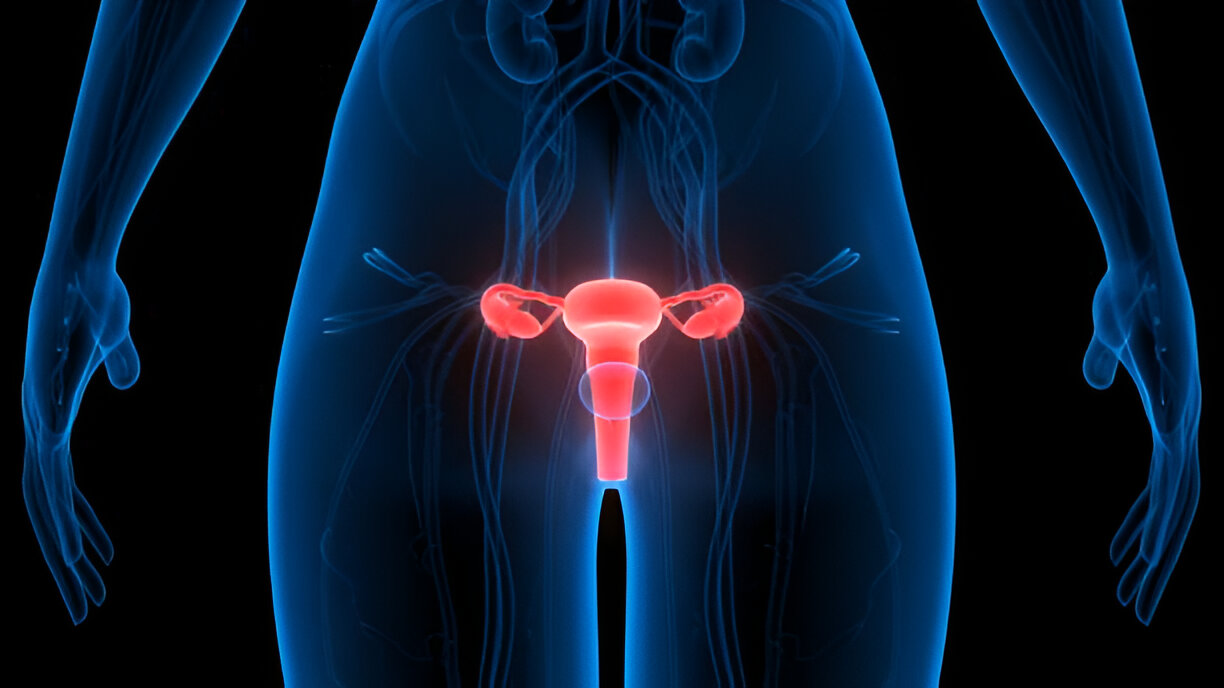
Ovarian Cyst
An ovarian cyst is a fluid-filled sac that develops on or inside an ovary. These cysts are common and often form during the menstrual cycle. Most ovarian cysts are harmless and go away on their own, but some can cause problems and may require treatment.
Symptoms
- Pelvic pain or discomfort, often on one side
- Bloating or swelling in the abdomen
- Pain during intercourse
- Menstrual irregularities
- Frequent urination or difficulty emptying the bladder
- Sudden, severe abdominal or pelvic pain (in cases of cyst rupture or torsion)
Causes
- Retrograde Menstruation: Menstrual blood flows backward through the fallopian tubes into the pelvic cavity instead of leaving the body.
- 2. Embryonic Cell Transformation: Hormones such as estrogen might transform embryonic cells into endometrial cell implants during puberty.
- Surgical Scars: After surgeries like a hysterectomy or C-section, endometrial cells may attach to the surgical incision.
- Immune System Disorders: Problems with the immune system may make the body unable to recognize and destroy endometrial-like tissue growing outside the uterus.
What are the Treatment options : ?
- Medications: Pain relievers, hormonal therapies (birth control pills, GnRH agonists, progestin therapy), and anti-inflammatory drugs.
- Surgery: Laparoscopy to remove endometrial tissue, hysterectomy in severe cases.
- Lifestyle Changes: Diet and exercise modifications to help manage symptoms.
- Alternative Therapies: Acupuncture, yoga, and herbal treatments may provide symptom relief.
Health Care Tips?
- Pain Management: Over-the-counter pain relievers like ibuprofen can help alleviate menstrual pain.
- Healthy Diet: Maintain a balanced diet rich in fruits, vegetables, and whole grains. Avoid foods that may cause inflammation.
- Stress Management: Practice stress-reducing techniques like meditation, yoga, or deep breathing exercises
- Monitor Symptoms: Keep a journal of symptoms to discuss with your healthcare provider for better treatment planning.
How It Works?
There is no cure for endometriosis, but treatments can help manage symptoms and improve quality of life.
There is some evidence that endometriosis can run in families, indicating a genetic component.